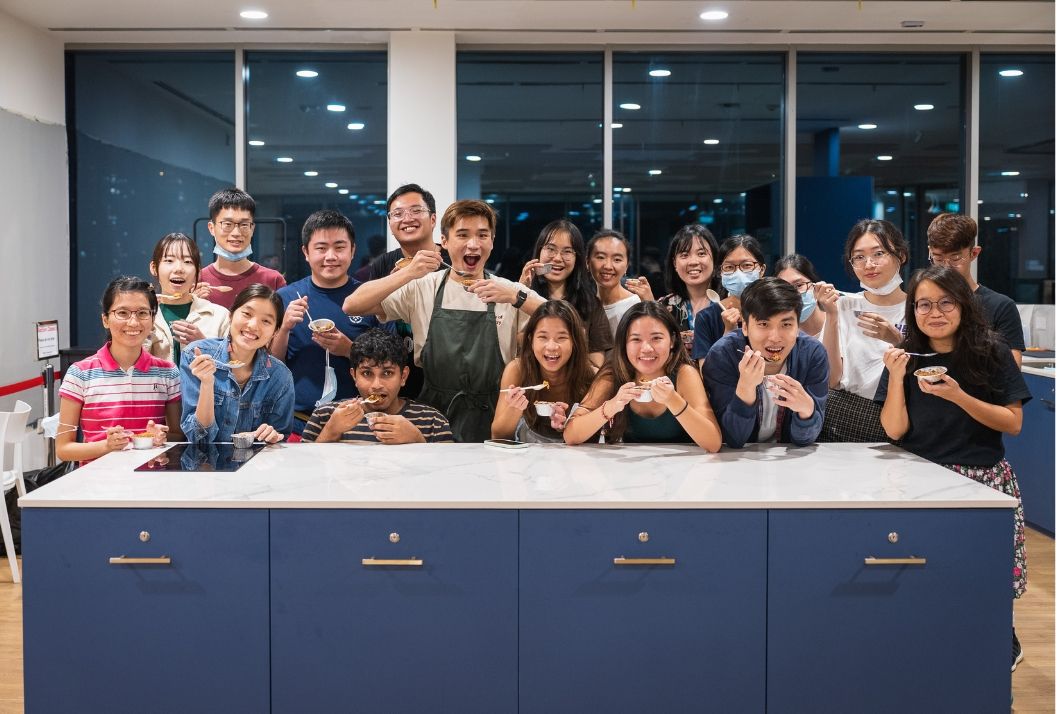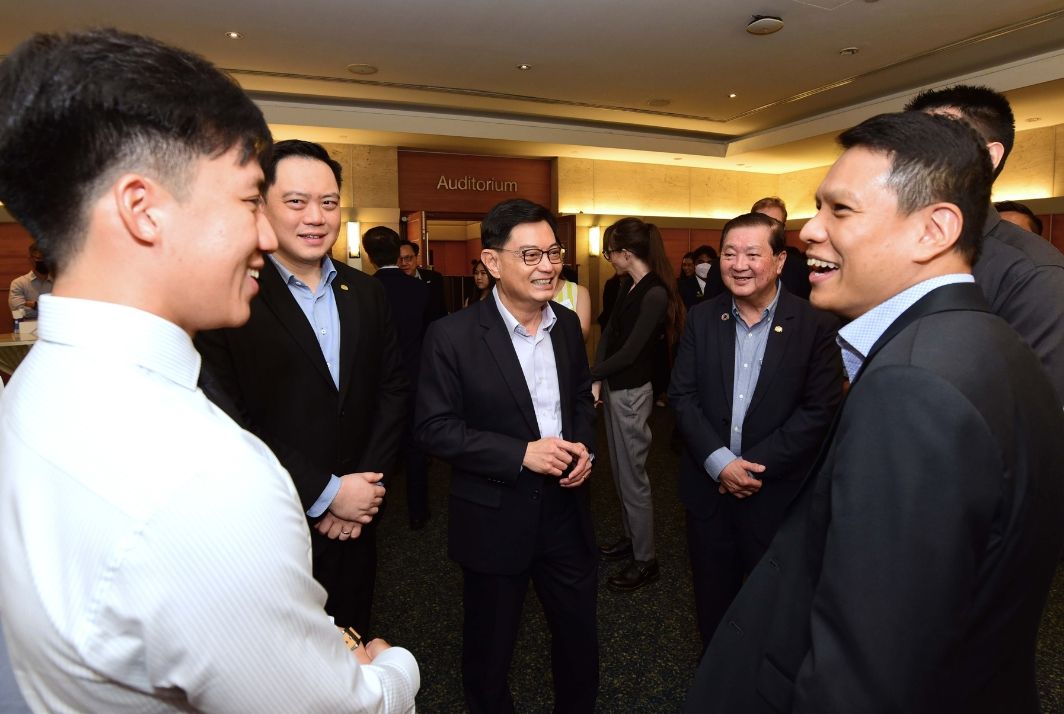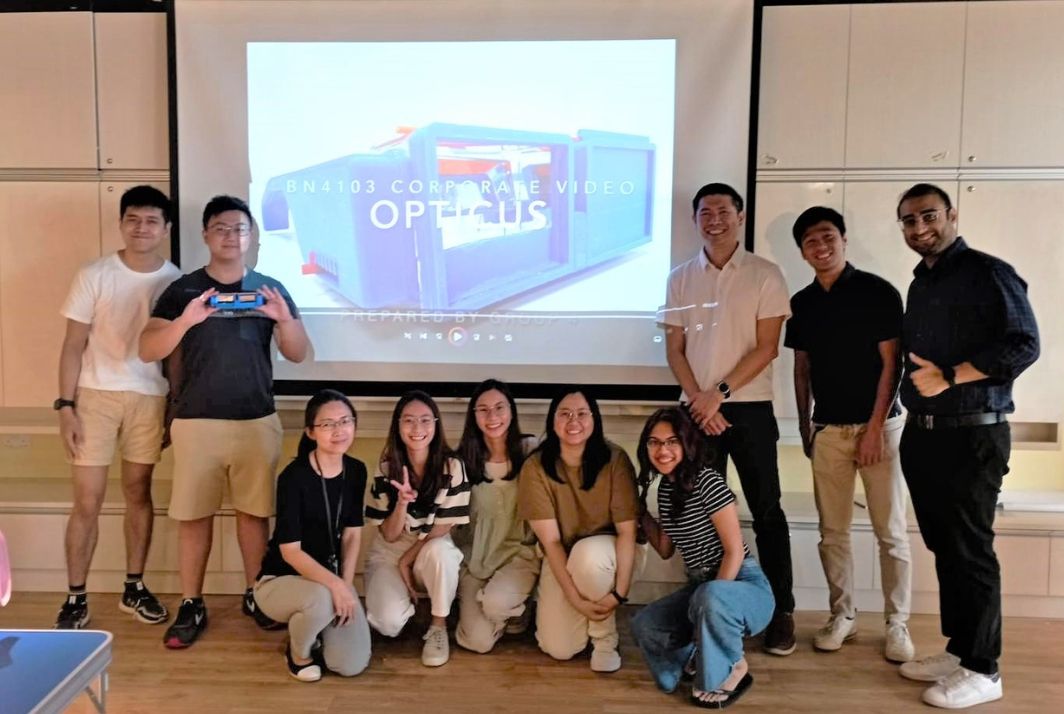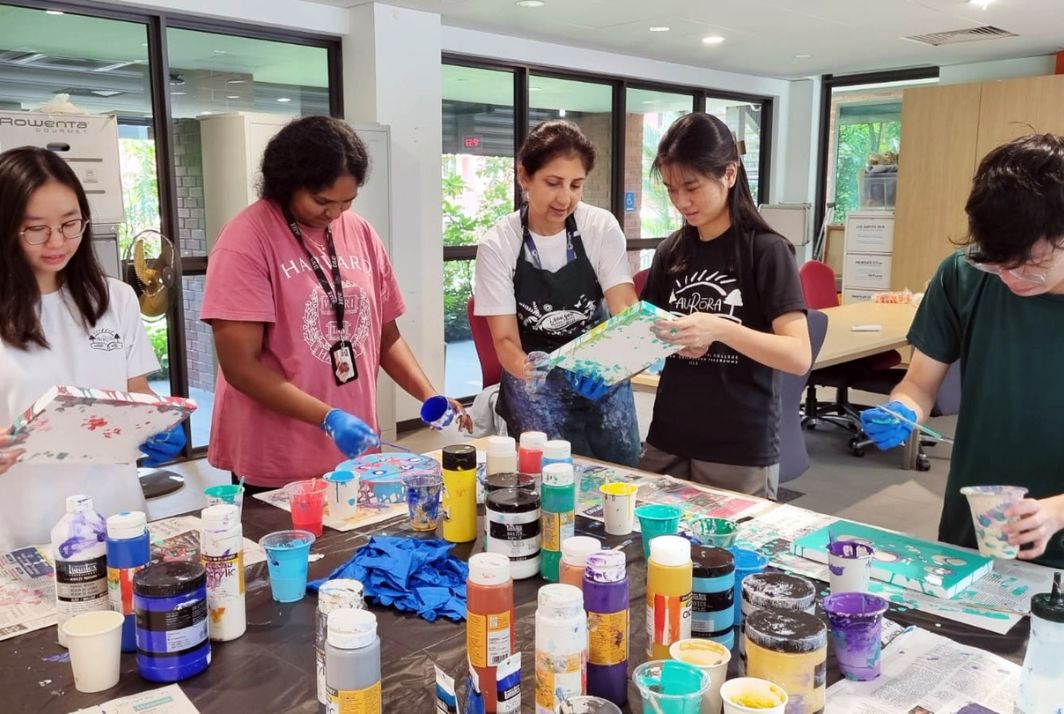More than 300 industry leaders and students participated in the seventh edition of the St. Gallen Symposium Singapore Forum 2023 on 13 January 2023 held at NUS University Town. As the world’s longest standing platform for cross-generational dialogue, the symposium seeks to actively bring together key voices of all generations and foster mutual understanding and joint action.
This year’s topic, “a new generational contract”, attracted many distinguished speakers across a wide variety of sectors including guest-of-honour Minister for National Development of Singapore Desmond Lee, Novartis Asia Pacific, Middle East & Africa president Dr Iris Zemzoum, Singapore of International Chamber of Commerce chief executive Victor Mills, and HSBC Singapore chief executive officer Wong Kee Joo.
Organised by the National Youth Achievement Awards (NYAA) and supported by the University, St. Gallen Symposium and the Embassy of Switzerland, the session began with an opening address by St. Gallen Foundation chief executive officer Beat Ulrich, Ambassador of Switzerland to Singapore Frank Grutter and Minister Desmond Lee. Participating students then had the opportunity to engage with and post questions to the panel.
The need for cross-generational dialogue
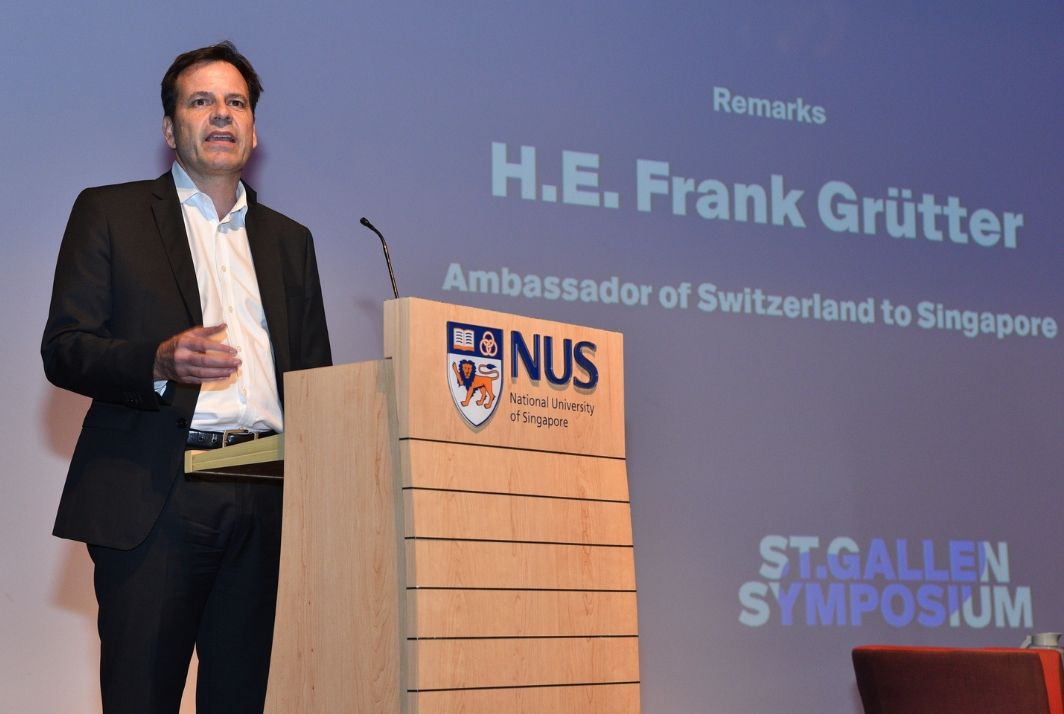
Ambassador Frank Grutter expounded on why we should care for future generations.
“This is a question many in society has to grapple, especially when faced with many of today's challenges such as global warming, the loss of biodiversity, the future of work, our existential nature,” he said.
“The older and younger generation share a unique relationship. It is not surprising for a person at age 20 to take a very different approach from someone who is 80 years old when facing these challenge. Hence, intergenerational dialogue, where the voices of all age groups are being heard and considered is important.”
He strongly cautioned against assuming that prior generations are indifferent to the concerns of millennials and generation z.
He stated: “Experience shows that the elderly deeply cares about the young and vice versa. For example, in Europe, they not only have climate youth – young people who demonstrate against climate change and against the inertia of politicians - but also a group of seniors who have taken through the courts to fight for more ambitious climate measures.”
“Whatever the main engagement of these two groups, their engagement shows that both old and young share in their concern of the world and the difference lies in the approach they are taking. I am convinced the more radical spirit (of the youth) combined with the experience of the older generation are both necessary to come to good solutions,” he continued.
Singapore’s social compact and stewardship as a core value
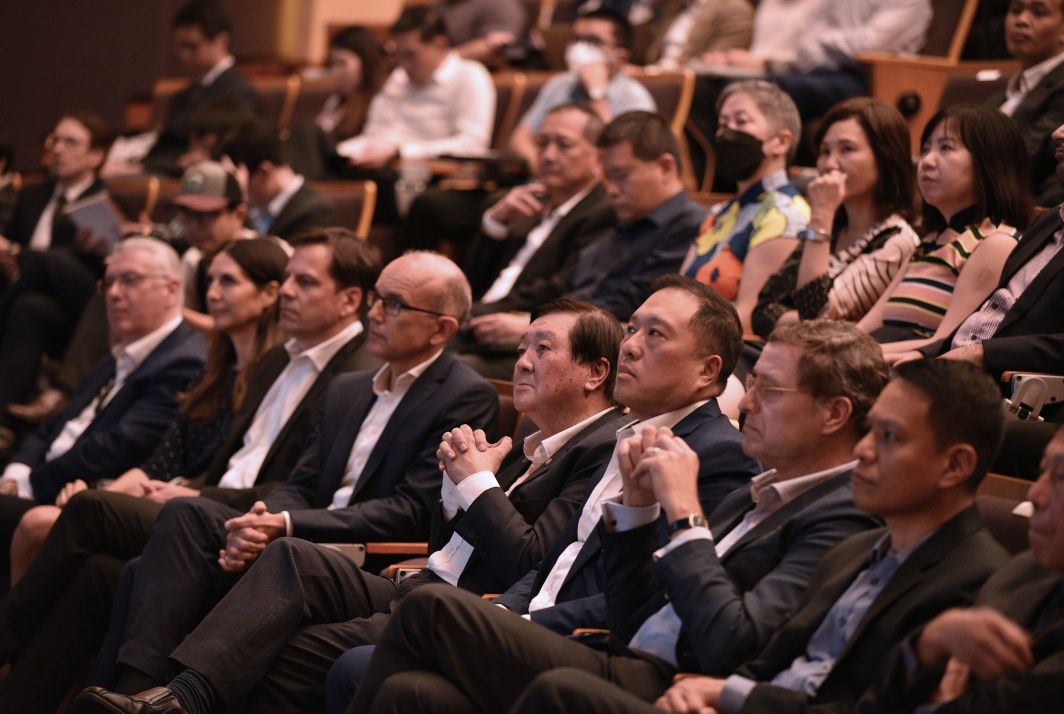
Minister for National Development Desmond Lee alluded to the development of Singapore’s social compact over the decades – moving from a strong emphasis on individual responsibility and self-reliance in the early post-independence years to a greater sense of collective responsibility as Singapore's economy grew.
This intergenerational social compact also manifests in the stewardship of Singapore’s resources – a calibrated approach to urban planning amidst land constraints and limited resources.
He said: “There is always a temptation to exhaust all our land and consume our fiscal reserves to make popular choices for today's generation, but our pioneer leaders were disciplined and far-sighted to make difficult trade-offs and long-term plans that set our generation up for success. For example, it took more than 30 years of painstaking planning, investment, and preparation, before developments in Marina Bay started taking shape in the new millennium.”
“Another critical principle that our pioneers set out, was the protection of the State's reserves, which enabled us to build up a rainy-day fund. This spirit of stewardship is thus a defining feature of the social compact we inherited that is core to our Singapore identity,” he continued.
Singapore’s home ownership approach
Minister Desmond Lee explained how Singapore’s homeownership approach has engendered greater intergenerational mobility and provided greater stability for lower-income families.
He cited: “Today, Singapore already has one of the highest home ownership rates in the world, at close to 90 percent. This is higher than the United Kingdom and United States at 63 percent and 65 percent respectively. More remarkably, around 85 percent of our low-income households own their homes. Something not commonly seen in countries around the world.”
“We recognise having a stable living is important to improve intergenerational mobility. Hence, we provide highly subsidised rental housing under the Public Rental scheme as a social safety net. To ensure that our public housing remains inclusive, such public rental flats are built alongside – or, even within the very same building as – sold HDB flats.”
“Beyond the provision of housing, we have also implemented the Community Link Rental flats (ComLink) and Fresh Start Housing Scheme, to empower families with children living in rental housing, to help uplift their life and build up resources for a brighter future.”
Caring for our seniors
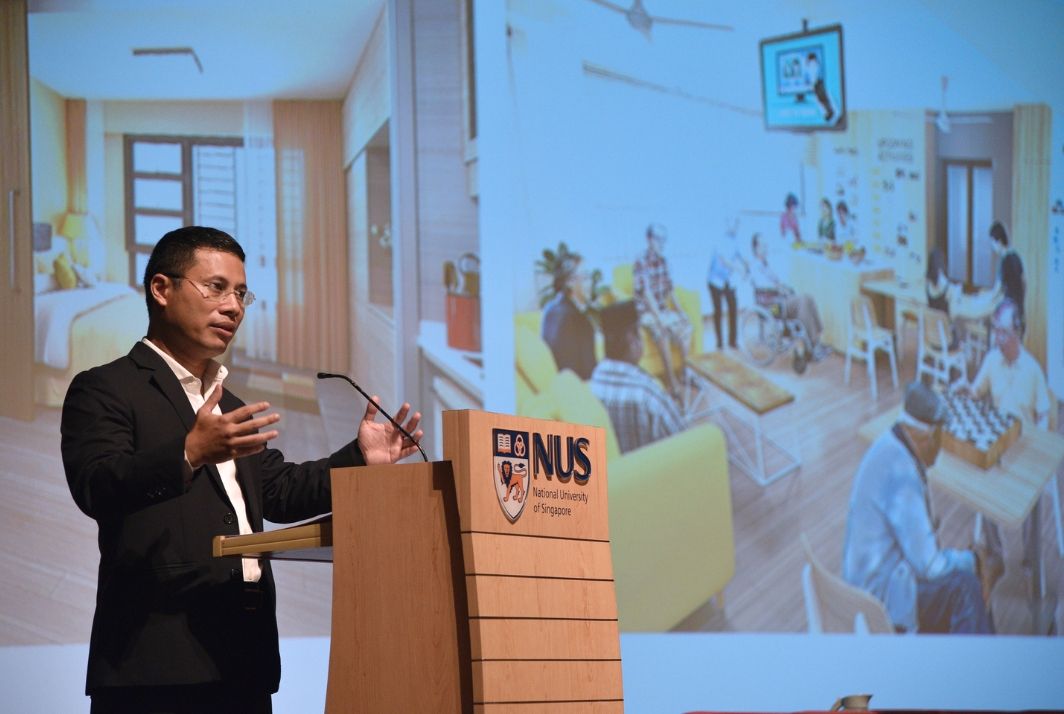
Minister Desmond Lee highlighted that caring for seniors is a key part of Singapore’s intergenerational compact. The government provides extra support to Singapore’s pioneer generation by setting aside funds from today's budget and not burdening future generations.
These pioneers contributed significantly to nation-building during Singapore's early years but did not fully benefit from our economic growth later on. He said: “These are important societal values we want to reinforce - a sense of gratitude and respect to those who came before us.”
“We are also shifting to a community-based model of care for our elderly and ageing-in-place. We are innovating with new models of public housing for seniors such as Community Care Apartments, which is a new typology for assisted living that integrates housing with care services.”
Tackling climate change
Climate change remains a key present challenge that has a long-lasting impact on future generations and Minister Desmond Lee expounded that it is the onus on the current generation to take action to combat climate change.
He elaborated on Singapore’s climate action plans: “We have set an ambitious national target to achieve net zero by 2050 and launched the Singapore Green Plan 2030, a whole-of-nation movement to pursue sustainable development. Initiatives within the plan cuts across different sectors, from energy to transportation, and even the education sector.”
“Climate change could cause mean sea-level around Singapore to rise by up to 1 meter by 2100. Some of our biggest investments are in coastal protection and these are long-term investments, and could cost $100 billion or more, over the next 50 to 100 years. And this, once again, highlights the importance for us to save up our reserves for rainy - and quite literally, stormy days.”
Paving the way forward
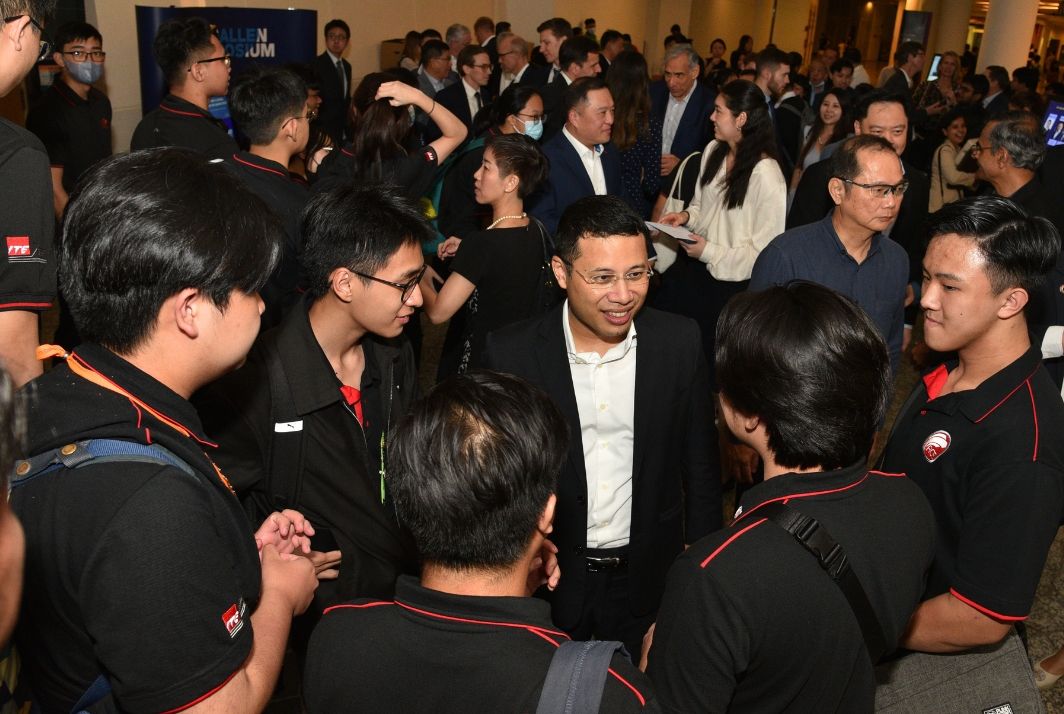
Minister Lee concluded his address: “There are trade-offs to be made and some of the policies may be unpopular and may perhaps not sit well with everyone.”
“But these long-term projects are not wasteful expenditures - on the contrary, these are critical projects that are needed to ensure the very survival of the nation. There will be no more Singapore for our grandchildren and their grandchildren if we fail to plan ahead or mitigate the existential risks we foresee today. We must therefore continue to save up, plan for the future, and work together to implement these projects over the decades and centuries to come.”
Read our coverage of the second part of the St. Gallen's Symposium Singapore Forum here.
Share:
Contributor
This story was first published in NUS News on 15 September 2023.



